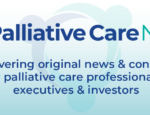Pediatric palliative care providers have room for improvement when it comes to understanding the factors that can impact health care decisions among seriously ill young adults and adolescents. A diverse range of social, emotional and psychological developmental factors can complicate the ability of pediatric palliative providers to navigate advance care planning conversations and deliver goal-concordant […]
Hospice and Palliative Nurses Association
Strains on reimbursement, referrals and staffing represent the biggest obstacles to palliative care providers’ viability and growth. It takes time to build up the payment, referral and workforce resources needed to support a sustainable palliative care program, according to Dr. Stephen Goldfine, chief medical officer at Samaritan Healthcare & Hospice. The New Jersey-based nonprofit offers […]
Though revenue streams for palliative care are often shallow, these services can generate sustainable growth for providers who can play their cards right with payers. Providers walk a tightrope when it comes to ensuring that their palliative care services are financially sustainable, according to Lynn Spragens, founder and partner of Spragens & Gualtieri-Reed, a North […]
Identifying patients and finding referral sources are two challenging issues when it comes to reaching homeless populations in need of hospice. Improving equitable, quality care for homeless populations involves providing education to internal hospice staff and to community care partners and referral sources, according to Nycole Snodgrass, director of operations for hospice and palliative at […]
Hospice providers in facility-based settings may be underutilizing Medicare’s service intensity add-on (SIA). Compared to routine home care, patients receiving the general inpatient level of care (GIP) were 22.8% less likely to have a SIA-applicable visit, according to an analysis by Abt Associates. SIA visits for patients in GIP on average had 67.6 fewer minutes. […]
Current advance care planning reimbursement structures are limiting utilization and access of these services, particularly among communities of color. The payment barriers blocking more equitable advance care planning are two-fold, existing on both the health care provider and patient sides. On the patient side, Medicare beneficiaries face out-of-pocket costs when advance care planning is performed […]
If enacted, the recently reintroduced Palliative Care and Hospice Education Training Act (PCHETA) could make a dent in the recruitment barriers that hospices keep hitting. But clinical education will need a much larger boost to ensure a sustainable workforce, according to many providers. The training issue is a serious impediment to hospice recruitment, as very […]
Stakeholders in the hospice space are optimistic that Congress will pass the recently reintroduced Palliative Care and Hospice Education Training Act (PCHETA). While some see the bill as a beacon of hope, sustainable change will likely require more than a single piece of legislation. The legislation has percolated for the past five years without passing, […]
Sens. Tammy Baldwin (D-Wisc.) and Shelley Moore Capito (R-W.Va.) have reintroduced the Palliative Care and Hospice Education Training Act (PCHETA), designed to bolster the field’s shrinking workforce with federal support. If enacted, PCHETA would support hospice and palliative care training programs for physicians, nurses, pharmacists, social workers and chaplains. The bill would also expand continuing […]
Integration of telehealth has become an important component in serious illness and end-of-life care. Providers leveraged telehealth to build efficiency and increase touch points with patients and families, while also reducing travel and leg work for staff. But as pandemic restrictions start to wind down, regulatory uncertainties and questions abound about the long-term impact of […]










